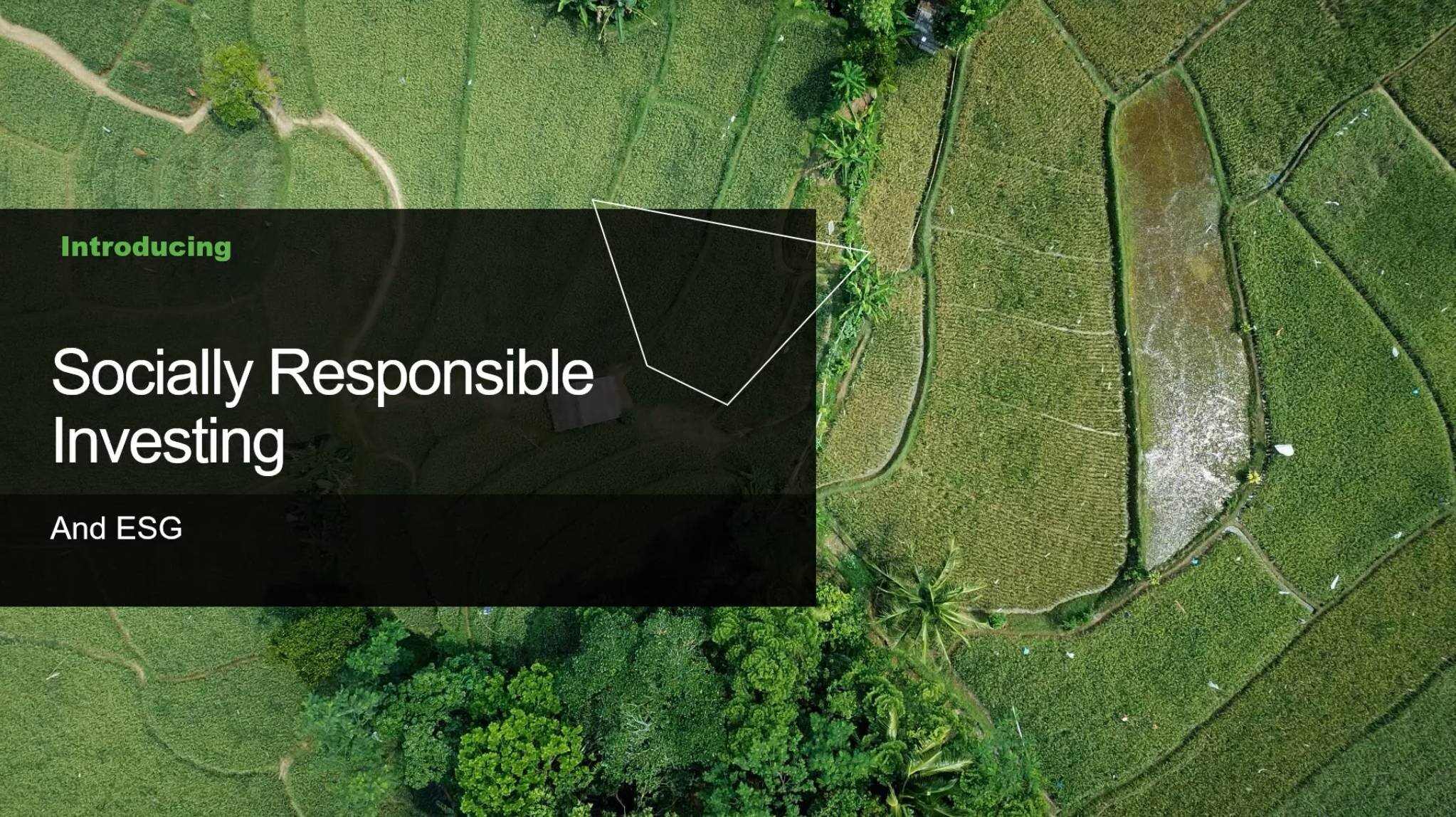Socially Responsible Investing
Australians are increasingly wanting and expecting to have their savings invested in line with their beliefs and morals. Ideally this involves an investment portfolio that causes no harm to the community and leaves the world a better place.
Responsible and Ethical Investment has grown rapidly within the investment landscape both globally and within Australia. In addition to the social benefits responsible investing can provide to an investment portfolio, there is a large amount of research being completed delving into the performance advantages of responsible investing when compared to non-responsible investing.
Download the Arrow Socially Responsible Portfolio Flyer for more information.


Socially Responsible Investing (SRI)
Socially responsible investing (SRI) is an investing strategy that strives to generate both ethical change and financial returns for an investor. Investors interested in SRI don’t just select investments by the typical metrics — performance, expenses and the like — but also by whether a company’s revenue sources and business practices align with their values. And since everyone has different values, how investors define SRI will vary from person to person.
Environmental, Social & Governance (ESG)
These are the criteria that altogether establish the framework for assessing the impact of the sustainability and ethical practices of a company on its financial performance and operations.
Issues
Globally the world is faced with a wide array of sustainability issues ranging from pollution and global warming to water scarcity. To combat sustainable issues, a range of companies and projects have pursued funding from the broader public to get them off the ground, creating a range of sustainable investment themes. Investment within these themes continues to support these companies to achieve sustainable outcomes. Over time, as the globe develops a greater reliance on these technologies, it is expected that these companies will mature and grow.
Water Scarcity
Demand for fresh water continues to increase significantly due to population growth, economic development & changing consumption, result in growing water usage. Supply and quality of fresh water are negatively impacted by eco-system degradation and climate change.
Land Degradation
May lead to the deterioration of soil and water quality, leading, in turn, to reduced crop yields and greater remediation costs. The food and agriculture industries are mostly affected, although other industries may suffer indirectly.
Biodiversity Loss
May seriously impair the supply and quality of natural resources used by society such as food, water, energy, wood and many others. Significant impact to industries including food and agriculture, pharmaceuticals & tourism.
Waste Management
Management of waste differs greatly depending on whether it is hazardous or non-hazardous. Companies that produce hazardous waste are at a higher risk of public and regulatory scrutiny. Other sectors where waste disposal risks are present include the information technology, energy and mining sectors.
Changing Climate
Although the consequences of climate change can influence an entire economy and all primary industries, its immediate impact is felt in extreme weather events such as storms, floods and droughts. These factors could potentially affect the insurance, infrastructure, mining, agriculture, fisheries and tourism industries, just to name a few.
Deforestation
Occurring globally and is contributing to climate change, water supply/demand imbalances, soil erosion, biodiversity loss and displacement of people. Absence of sustainable forestry management can have immediate effect on paper, forestry and construction industries.
Investment Universe
Within the investment universe an increasing number of responsible funds are becoming available to the retail investor. It’s now possible to create a diversified investment portfolio that is not only socially responsible but is also aligned to a broader investment philosophy. In addition to a growing investment universe, it is now possible to invest thematically allowing access to portfolios that specifically target sustainable themes that are expected to be the backbone of our future global economy e.g. clean energy, sustainable farming.
Five Level Framework
Positive Screening
Negative Screening
Sustainability Themed
Impact Investing
ESG Integration
Positive Screening
Industries, sectors and companies that are benefiting from, or contributing to, improving global environmental sustainability and resource efficiency.
Education
Healthcare & Medical Product & Technology
Natural Food & Healthy Living
Waste Management
Transport
Negative Screening
A screening policy that systematically excludes industries, sectors, companies, regions and practices from a portfolio that are misaligned with the responsible investment goals. Also known as ethical screening.
Gambling
Tobacco
Alcohol
Weapons Manufacturing
Child Labour
Sustainability Themed
Involves investing in companies or assets that are within a sustainability theme. Typically, this involves investing in funds who pursue themes such as green technology, water technology, or clean energy and sustainable agriculture. Many of these themes in the future are predicted to become the backbone of our economy and investment in them contributes to solutions globally.
Green Technology
Green Property
Clean Energy
Sustainable Agriculture
Water Technology
Impact Investing
Can include a growing list of activities including access to education, energy, water or healthcare; affordable housing; renewable energy; and micro-finance. As such, impact investing can also be in businesses or projects which provide employment and training, or which disrupt an established sector for the benefit of society as a whole.
Achieving something positive for society
ESG Investing
Environmental, social, and governance factors are rapidly gaining investor favour worldwide The ongoing boom in sustainable investing is proof that ESG issues are now key economic determinants with significant bearing on businesses and investors. Risks assessed at a sector and company level.
Environmental - Carbon emissions, energy efficiency, pollution mitigation, water security
Social - Labour standards, community impact, customer privacy, product safety
Governance - Board structure, strategic sustainability oversight, bribery & corruption oversight
Investment View
A wide range of views that argue that responsible investment can provide a superior performance by incorporating the responsible investment framework into the investment decision making process.
To date a number of responsible funds have outperformed their peers.
There is rapid growth within the sector as a new generation of investors align their values and recognise the favourable risk adjusted returns. The responsible investment sector has grown significantly and more investment professionals turn to responsible investment.

